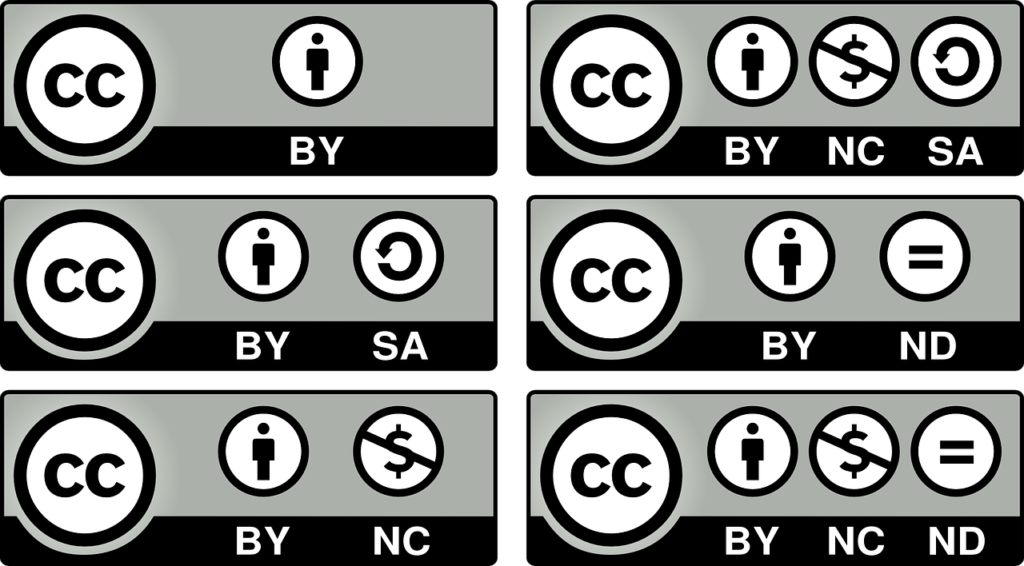Calling up Justice presents this resource to understand Creative Commons. Creative Commons is a non-profit organization that provides a set of licenses and tools designed to enable the sharing and use of creative works while giving creators the ability to choose the level of protection they want for their creations. Creative Commons licenses allow creators to retain copyright while allowing others to use their works under certain conditions.
There are several types of Creative Commons licenses, each denoted by a combination of symbols:
- Attribution (BY): This license allows others to use, modify, and distribute the work, even commercially, as long as they give appropriate credit to the original creator.
- ShareAlike (SA): This license permits others to use and modify the work as long as they distribute their own contributions under the same license terms.
- NonCommercial (NC): With this license, others can use and modify the work, but not for commercial purposes.
- NoDerivatives (ND): This license allows others to use the work, even for commercial purposes, but they cannot modify or create derivative works based on it.
Creative Commons licenses are usually represented by a combination of these symbols. For example, a work under the “Attribution-NonCommercial-ShareAlike” license (CC BY-NC-SA) can be shared and modified by others for non-commercial purposes, as long as they give credit and share their modifications under the same license.

Creative Commons licenses give everyone from individual creators to large institutions a standardized way to grant the public permission to use their creative work under copyright law. From the reuser’s perspective, the presence of a Creative Commons license on a copyrighted work answers the question, “What can I do with this work?”
What is Creative Commons and what do they do?
Creative Commons is a global nonprofit organization that enables sharing and reuse of creativity and knowledge through the provision of free legal tools. Their legal tools help those who want to encourage reuse of their works by offering them for use under generous, standardized terms; those who want to make creative uses of works; and those who want to benefit from this symbiosis. Their vision is to help others realize the full potential of the internet. CC has affiliates all over the world who help ensure our licenses work internationally and who raise awareness of our work.
Although Creative Commons is best known for its licenses, our work extends beyond just providing copyright licenses. CC offers other legal and technical tools that also facilitate sharing and discovery of creative works, such as CC0, a public domain dedication for rights holders who wish to put their work into the public domain before the expiration of copyright, and the Public Domain Mark, a tool for marking a work that is in the worldwide public domain. Creative Commons licenses and tools were designed specifically to work with the web, which makes content that is offered under their terms easy to search for, discover, and use.
For more information about CC, their main website contains in-depth information about the organization, its staff and board of directors, its history, and its supporters. You can also read CC case studies to learn about some of the inspiring ways CC licenses and tools have been used to share works and support innovative business models. You can find regularly updated information about CC by visiting the blog.

